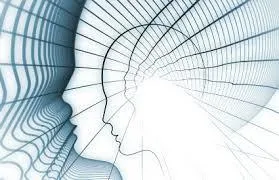The CRiB study
We are not currently running the CRiB study. A small feasibility study was completed recently and a summary of our findings can be found here.
We are hoping to start a larger CRiB study in 2022. If you would be interested in this, please contact us on affectivedisorders@kcl.ac.uk.
What is the study about?
Thinking skills, such as memory and concentration, are vital for carrying out daily life activities and communicating with others. However, many people who have been given a diagnosis of bipolar disorder face some difficulties with memorising recent information, maintaining their attention on a certain task, planning a course of action and solving problems. Such problems can affect people’s quality of life and may make some everyday tasks difficult. CRT is a new psychological therapy aiming to tackle such difficulties and improve thinking skills. We are using a computerised version of CRT, called CIRCUITS. It encompasses a series of tasks and exercises, others rather simple, like cognitive puzzles, and others more complex and fairly comparable to real-life problems. Training sessions are held two to three times per week (approximately one hour) with the help of a therapist, but there are no time limits on how much one can practice CIRCUITS in their own time.
What is the purpose of the study?
This study will investigate whether CIRCUITS is a therapy that people enjoy and find valuable, and whether it can improve people’s thinking skills, functioning in everyday life and achieving personal goals.
What does participation involve?
Using a random process, half of the people will receive CRT along with continuing their normal treatment, while the rest will be asked to continue their treatment as usual. In addition, all participants will be asked to attend three assessment sessions (before the intervention starts; after it has finished; and three months later) where they will complete a series of tasks and questionnaires measuring thinking skills, levels of functioning and other things such as symptom measurements.
When data collection has been completed, the two groups (CRT and treatment-as-usual) will be compared to test CRT effects. All data will be kept confidential throughout and after the completion of the study.
What is the possible benefit of taking part?
CRT has been shown to help people improve their thinking skills as well as their daily life skills. Additionally, your participation will benefit our understanding of bipolar and similar disorders, contributing this way to improving the available treatment for people suffering from these disorders.
Am I eligible?
If you are interested in participating, you will need to meet the following criteria to take part:
- Be 18-65 years old
- Have bipolar disorder
- Have no current impairing neurological or neurodegenerative disorder
- Have no current substance use disorder

Affiliations
Contact us
Becci Strawbridge (Trial Coordinator) or Dimosthenis Tsapekos (Study Researcher)
